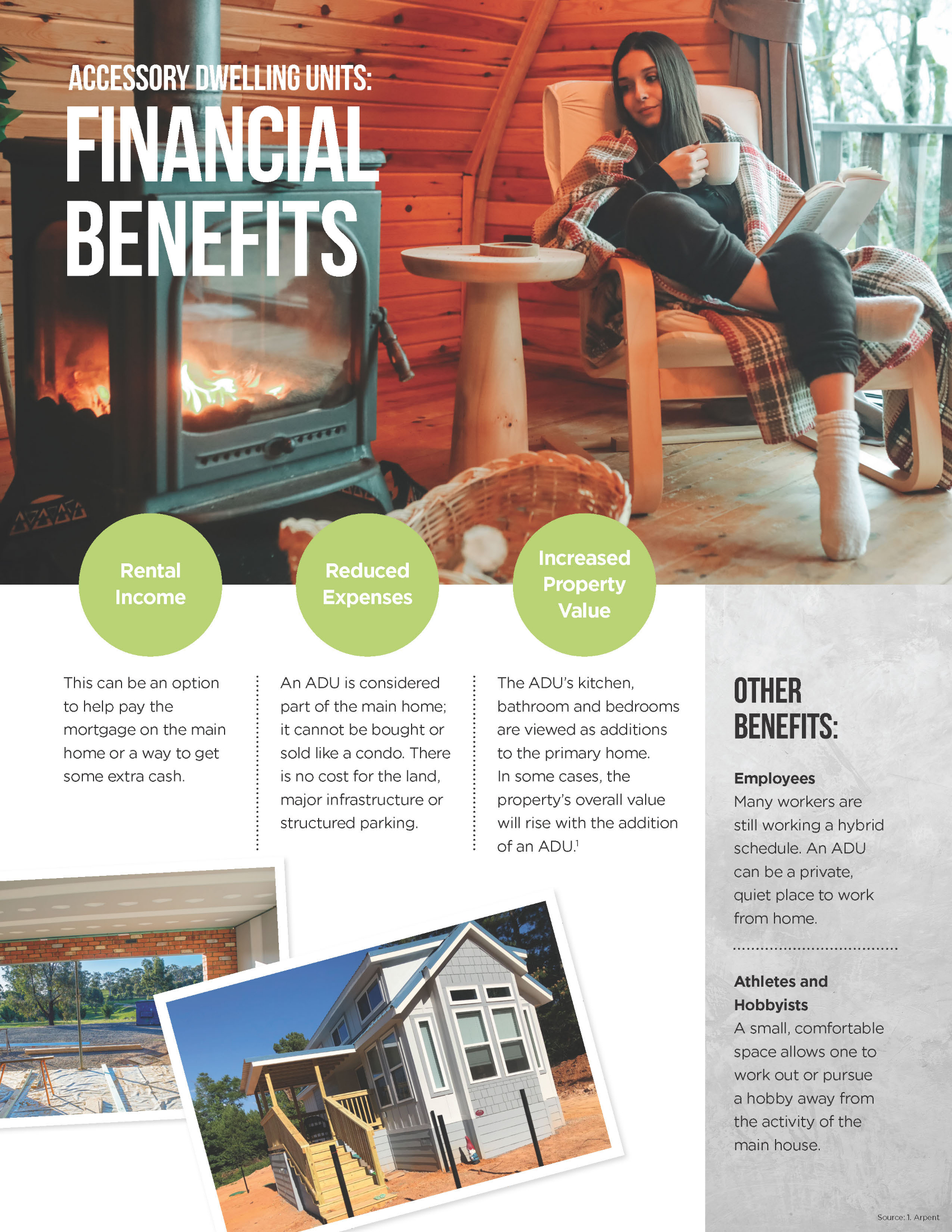Accessory dwellings, also known as granny flats, mother-in-law suites, or ADUs (Accessory Dwelling Units), offer several benefits:
Increased Rental Income: Building an accessory dwelling on your property allows you to rent it out, providing an additional source of rental income. This can be especially helpful in high-cost housing markets or for homeowners looking to supplement their income.
Multigenerational Living: ADUs offer a separate living space on the same property, which is ideal for multigenerational families. Elderly parents or adult children can live independently while remaining close to the main household.
Affordable Housing: ADUs can help address the affordable housing crisis by providing smaller, more affordable housing options within established neighborhoods. This can increase housing availability without the need for large-scale developments.
Property Value: Accessory dwellings can potentially increase the overall value of the property. The additional living space and potential for rental income can make the property more attractive to buyers.
Flexibility and Versatility: ADUs can serve various purposes, such as a guesthouse, home office, art studio, or even a short-term rental on platforms like Airbnb. This versatility allows homeowners to adapt the space to their changing needs over time.
Sustainable Living: Utilizing existing property space to build an ADU promotes more sustainable land use. It reduces the need for urban sprawl and helps make use of existing infrastructure and resources.
Aging in Place: For homeowners approaching retirement age, having an ADU on their property can be beneficial. They can move into the smaller unit, rent out the main house for income, and have the flexibility to age in place while maintaining some independence.
Community Density: ADUs can increase population density in established neighborhoods without drastically altering the area's character. This can support local businesses and public transportation systems.
Reduced Commute Times: By allowing more people to live closer to urban centers and job opportunities, ADUs can potentially reduce commute times and traffic congestion.
Regulatory Incentives: Some municipalities offer regulatory incentives for homeowners to build ADUs, such as reduced permitting fees or relaxed zoning requirements, making it more feasible for homeowners to add these units to their properties.


Here are some points to consider when it comes to ADUs in Alberta:
Regulations: Local municipalities in Alberta may have specific regulations regarding the construction and use of ADUs. These regulations can cover aspects like size, design, parking requirements, and occupancy. Checking with the local planning or building department will provide the most accurate information.
Zoning: Zoning regulations will dictate whether ADUs are allowed in certain residential areas. Some areas may permit ADUs as a permitted use, while others may require a discretionary use application or may not allow them at all.
Secondary Suite Program: Some municipalities in Alberta may have a secondary suite program that outlines guidelines for creating legal secondary suites (a type of ADU) in single-family homes. These guidelines often aim to ensure safety, health, and compliance with building codes.
Rental Regulations: If you plan to rent out the ADU, there may be rental regulations and licensing requirements to adhere to. These might include rental permits, safety inspections, and adherence to tenancy laws.
Utility Connections and Services: Ensuring that the ADU has proper utility connections, such as electricity, water, and sewage, will be essential for its functionality.
Homeowner's Association (HOA) Restrictions: If your property falls within an HOA, there may be additional rules and covenants regarding the construction and use of ADUs. Make sure to review these guidelines before proceeding.
Permitting and Construction Costs: Consider the costs associated with obtaining permits, construction, and any required upgrades to the existing property.
Community Support: Depending on the neighborhood, some communities might be more open to ADUs than others. Engaging with your neighbors and community stakeholders can be helpful in gaining support for your ADU project.
To proceed with building an ADU in Alberta, it is recommended to consult with local authorities, city planners, or housing departments. They can provide specific information on regulations, permits, and any incentives available in your area.


